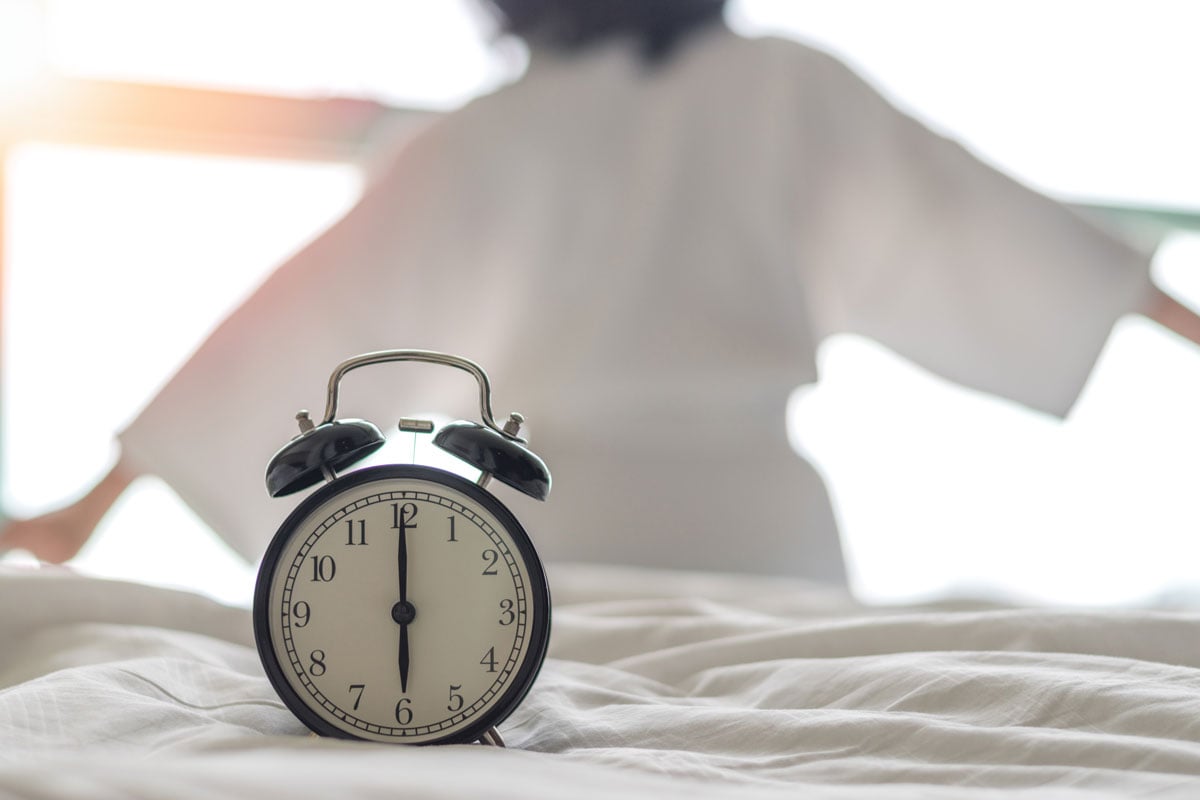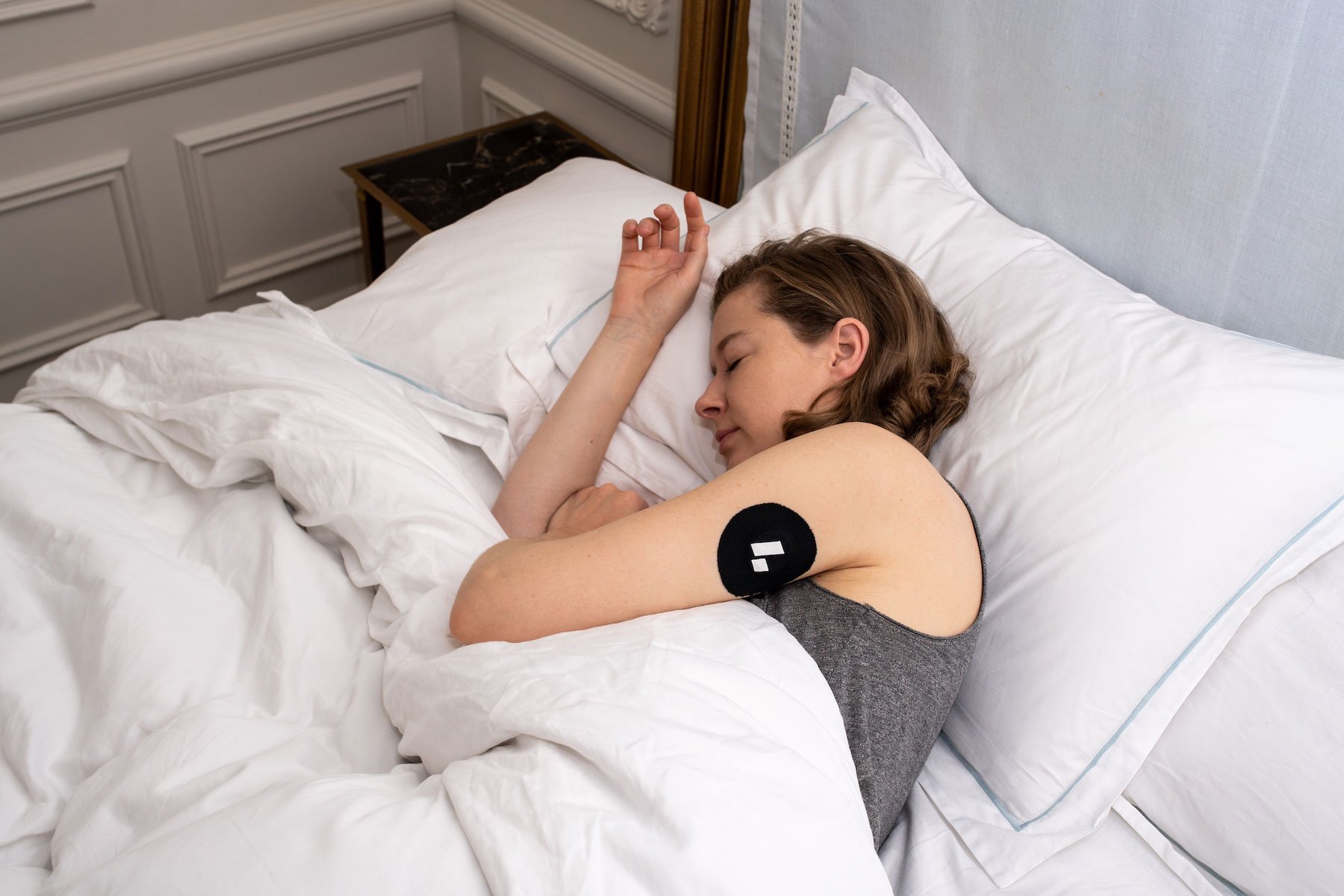The Study
Published: Diabetologia , November 30, 2021
Where: Lund University Diabetes Center (Sweden) and Harvard Chan School of Public Health (US.)
The Takeaway
Researchers found that people without diabetes who didn’t sleep well or deviated from normal sleep patterns had worse blood glucose control the next day.
What It Looked At
The authors assessed if fluctuations in sleep efficiency, duration, and the time people went to bed (compared to their usual bedtime), affected glucose response after breakfast the next day.
They studied 953 people without diabetes, aged 18-65, from the UK and US over 14 days.
Objective data on sleep and post-meal glucose metabolism usually come from small studies in specific populations, such as pregnant women, obese children, or people with diabetes. We know less about how sleep impacts the body’s ability to regulate sugar in people generally in good health (though there have been some studies on sleep deprivation and insulin sensitivity).
During the study, the participants ate eight different standardized meals that varied carbohydrate, protein, and fat ratios (one meal was a 75g glucose drink given as part of an oral glucose tolerance test, or OGTT, to serve as a point of comparison for glucose response.) Each person wore a continuous glucose monitoring (CGM) device, which collected sample data every 15 minutes. To monitor sleep, they each wore a wrist-placed actigraphy unit. Participants also slept in their beds (many sleep studies take place in lab settings).
Because participants ate standardized meals, researchers were able to compare how one person responded differently to different sleep conditions and macronutrient profiles (called within-person), as well as how other people responded (between-person). This helps account for individuality in nutrition response or sleep needs.
What It Found
Poor quality of sleep—and going to bed later—were linked to higher blood glucose levels and worse blood sugar control after meals the next day.
- There was a notable link between sleep efficiency or disturbed sleep and glycemic control regardless of what the person ate the next day. The better sleep a person got, the more likely they were (on average) to have lower blood glucose the next morning, compared to those who had poorer sleep.
- Sleep duration doesn’t seem to play as big a role. Researchers found no statistically significant link between sleep duration and glycemic control when participants ate in the morning. In explaining why this finding may be at odds with earlier studies that found connections between inadequate sleep and insulin, the researchers note that “the effect of sleep duration in glycemic control may be non-linear”—meaning you may only see those adverse effects at very low levels of sleep. Just getting a little less than usual may not create a significant impact.
- What you eat matters. There was an interaction in terms of the nutritional content of the meal. Sleeping longer was linked with lower blood glucose in participants who ate a high-carbohydrate, high-fat breakfast—even in those who slept longer than they typically would.
“On the other hand, the effects of sleep on blood glucose response were blunted when breakfasts that were higher in healthy fats and protein were consumed,” explains Dr. Paul W. Franks, one of the study authors. - Going to bed late isn’t so great for you. The later participants went to sleep (as opposed to just sleeping in later than usual), the poorer their glycemic control the next day.
Levels Member Experience:
Why It Matters
This study demonstrates clearly that sleep quality and hygiene matter for optimal metabolic health.
“Earlier bedtime and morning routines are generally better, uninterrupted sleep is better, and sticking to a regular sleep pattern is better,” Franks says.
“Even a single night’s deviation from one’s normal sleep routine has a detectable impact on blood glucose control,” he adds. “If you consider how many nights a year we deviate from a “usual” schedule—along with the accumulated impact on blood glucose control, that could be substantial in some people.”
The study also suggests that we should be mindful of the previous night’s sleep in deciding what to eat. If you know you got less sleep than usual, maybe opt for a lower-carb breakfast.
Next Up: Tailored Sleep Recommendations?
The authors point out that their findings could also lead to more personalized sleep recommendations instead of many current “get X-amount of hours per night” guidelines.
“These findings underscore the importance of sleep in regulating metabolic health, and a combination of both general and more personalized sleep guidelines is likely to be necessary to enable patients to minimize their risk of metabolic disease,” the authors say in a statement.
Future research needs to address the personalization of sleep.
“It’s entirely possible that one day we’ll be giving quite different sleep recommendations to different subgroups of the population based on their molecular and genetic characteristics, but that research is yet to be done,” Franks notes.
Conclusion
In short, pay attention to your sleep because it’s a vital aspect of overall health that you can improve, Franks says. Sleep hygiene—things like avoiding caffeine after lunch, sticking to a routine, and sleeping in a darkened room—may be your best bet to get a better night of sleep and maintain optimal metabolic health.









